How Will Parnassah Be Reshaped by Coronavirus?
| May 13, 2020Rewind to January of 2020 for a minute, and come have coffee with any young guy in Lakewood: He learned in kollel for a few years, got a job, and now he’s ready to go out on his own, perhaps into real estate, medical billing, or some sort of import.
No doubt, he is filled with optimism and confidence; HaKadosh Baruch Hu’s Hand is open and there has never been such an abundance of opportunity.
Now fast-forward to June, maybe July of 2020. The community is reeling. The largest void is felt by the families mourning the hundreds of shomrei Torah u’mitzvos who’ve been felled by this plague. But there are lesser korbanos too: the collateral damage in a tightly bound community that’s had its inside ripped out.
And when the dust settles, our young working guy is facing a crisis he never prepared for. Lakewood is a hub to many Amazon sellers, a fact that made it a perfect setting for entrepreneurs looking to launch small businesses. For so long, the mantra has been “buy it, buy lots of it, and you’ll find a customer, whatever it is.”
Even those who had several years of success, and were comfortable enough to start saving money for simchahs down the road, or perhaps an extension on the house or a summer home in the Catskills, are now in real trouble. The savings are gone — used to tide them over and meet expenses during these months — and now these young businessmen will be starting from scratch. The effect on their tzedakah giving or general spending will be felt immediately.
I have a friend who traveled to China not long ago, investing his life savings — chasunah money, money he and his wife earned over the years working in camp — in manufacturing his own line of paper goods, which he then sold on Amazon. He did nicely, selling primarily to people hosting parties and events. Now there’s a restriction on large gatherings, so there are no sales, no income, and no way to keep the business running.
Another acquaintance sank everything he had — money he got from grandparents and in-laws — into a piece of real estate, and he erected a small strip mall. He lined up other investors and a bank loan, and the small construction fee he took out was how he fed his own family. He planned to have the project finished this spring, with stores moving in by early summer. Now construction is halted, and the tenants he signed up may no longer be in business. How is he meant to live?
Or how about the guy who “made it.” After working for years as a nursing home administrator, he was able to invest in a nursing home of his own. He knew the business inside out, and left his job to run his own home, the fulfillment of a dream and reward for years of 18-hour days.
Then came coronavirus, and the workers stopped coming in because they got infected. He pulled together a skeleton staff and paid them time and a half. The rehab patients he was counting on to fill the beds stopped coming because there was no longer any elective surgery, so no rehab either. Now he can’t cover the huge mortgage and he can only hope the bank will defer — forget about a salary for himself.
The one thing all of the people above — real people, with families and lives who live near you and may well be reading this magazine right now — have in common is that three months ago, they were riding high.
This is reality, for now. Where’s the data? Who says the impact is that severe? Consider this. A local Lakewood shul with mainly working members has been holding a supper giveaway every night since COVID-19 struck. On a regular evening, they serve supper to 250 families: On a typical night, the askanim in charge handed out 1,200 ice creams, 275 pies of pizza, 500 orders of french fries, 200 salads. This is approximately 1,200 meals! In Lakewood of 2020, in a kehillah of working families!
Now, the next question. What is the long-term picture? Can they rehabilitate their businesses and survive? The media tells us about the various programs — bailouts and PPP and EIDL — all meant to tide over businesses through a few tough months until the economy starts pumping again. These programs will help, to a degree, but there will likely also be once-promising businesses that won’t reopen: There will be too much unsold inventory, too much debt, too much work needed to find the groove again. Selling off stuff at a fire sale can bring in cash, but it might not be enough to keep a business afloat.
The business owners I talk to feel the only way they can survive the rehabilitation period is through interest-free loans, payable over a two-year period. Not everyone has access to such terms, but, as the rabbanim here in Lakewood have told me numerous times, if there are those in a position to offer those loans, they will earn eternal merit. U’mi yodei’a im l’eis kazos — Who can know whether you’ve been gifted for precisely this opportunity.
Another thing to keep in mind is that even those businesses that had enough cash on hand to survive the virus will reopen to a very different world. With social distancing in effect, only a limited number of customers will be able to come into stores at once, making the shopping experience inconvenient and much less of an enjoyable social outing. The only customers to step inside will be those who really need the item in question. No one will go in “just to look around,” and a retail establishment can’t really survive that way. Even those stores that open up online portals can never hope for the same volume of sales.
There’s also the spillover effect. More struggling frum households means less disposable income. That means less overall spending in frum restaurants, bookstores, and vacation sites. The caterer is in real trouble after months with no work: Even if he still has a staff, the booking will be smaller and more modest, which affects all his suppliers. The eidem in kollel is in trouble without his father-in-law’s monthly checks and full tuition is a thing of the past, so where does that leave the school?
The result? I would guess that 50 percent of frum businesses will be in real trouble within the coming year.
If there is a silver lining, it’s that the gvirim are waking up. I’ve seen it and continue to see it. They realize their responsibility. They realize that parnassah was never in their hands.
Every crisis has a before and after. There is always a new and different post-crisis reality. The federal government will adapt post-crisis. They created the TSA after 9/11, and after COVID-19, they will build more hospitals with more room for critical patients.
What will we do?
Based on conversations with rabbanim and askanim with much more experience than I, we need an immediate fund to help people who are out of work. Beyond that, we need to see some deeper changes in our approach to wealth and spending.
I’m not one to say what has to change, but those involved with helping families get through the month keep davening for the high life to end — the helicopter rides to the airport and Pesach in Florida mansions and parties that are just a race to out-glitz the neighbor. They are desperately hoping that we won’t end up back there.
HaKadosh Baruch Hu has sent a very clear message to the millennial generation. Months ago the nisayon was to live within one’s means and stop keeping up with the Joneses. Now that won’t be the struggle. It’s time to scale back and live below your means. If you’re fortunate enough to be where you were on Tu B’Shevat, then do it out of good taste and basic decency, because many of your neighbors are in a very different place.
Granted, many heimesh Yidden make a living in the simchah industry, providing one service or another — music, high-end catering, party rentals. The wealthiest element will still make simchahs and there will still be business for these hardworking Jews, b’ezras Hashem — but the hope is that those who don’t really fit into that financial bracket won’t feel the pressure to emulate their spending.
It means that not every single creative woman will become a party planner (they will find other jobs). Singers will still have who to sing to and for, it just won’t be without control and limit. And people will not feel the same pressure to follow the herd and make sure their simchah includes all the “must-haves.”
Slow down, the rabbanim are saying.
A wealthy man pledged a very large amount of money to help those affected by the virus, and I asked him what drove him to commit to such a generous amount. “Gershy,” he said with feeling, “don’t you realize it’s Ne’ilah? Our last chance to ask HaKadosh Baruch Hu to spare us? Who knows what our businesses will look like on the other side of this… we need all the zechusim we can get.”
We need all the zechusim we can get.
Gershy Tress is a Lakewood-based small-business owner and a member of the board of Bikur Cholim of Lakewood.
(Originally featured in Mishpacha, Issue 810)
Oops! We could not locate your form.

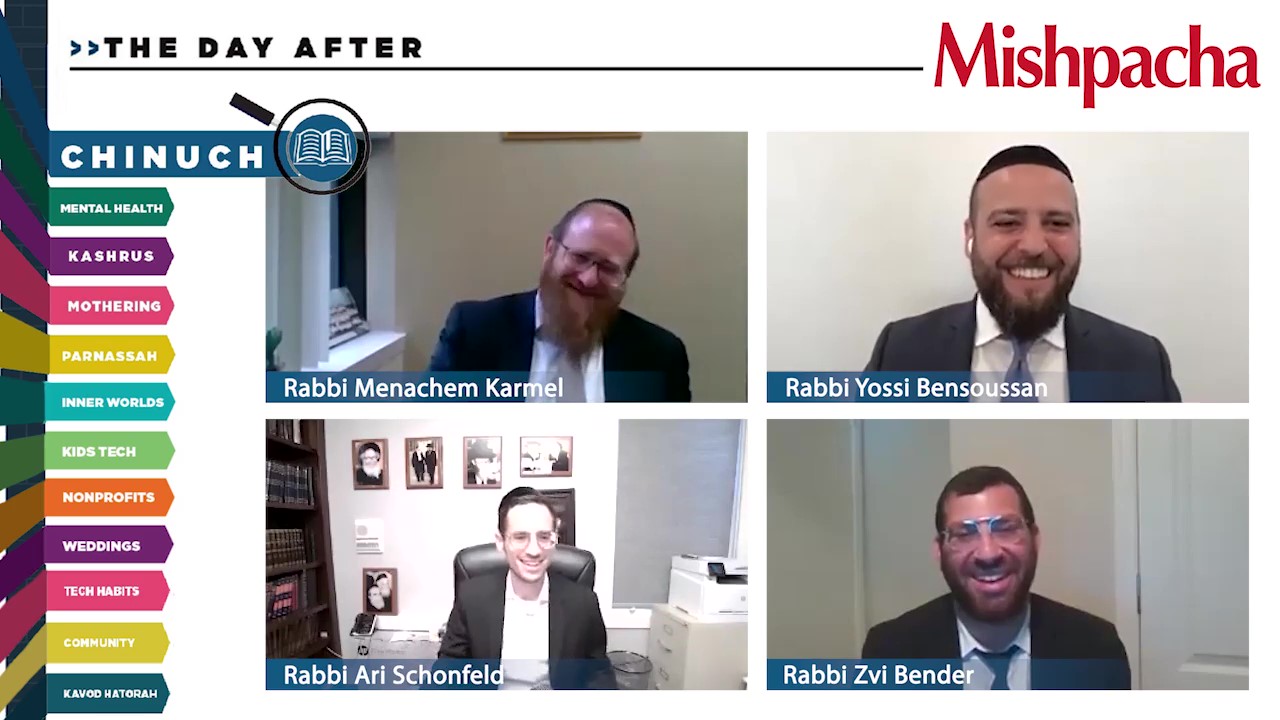
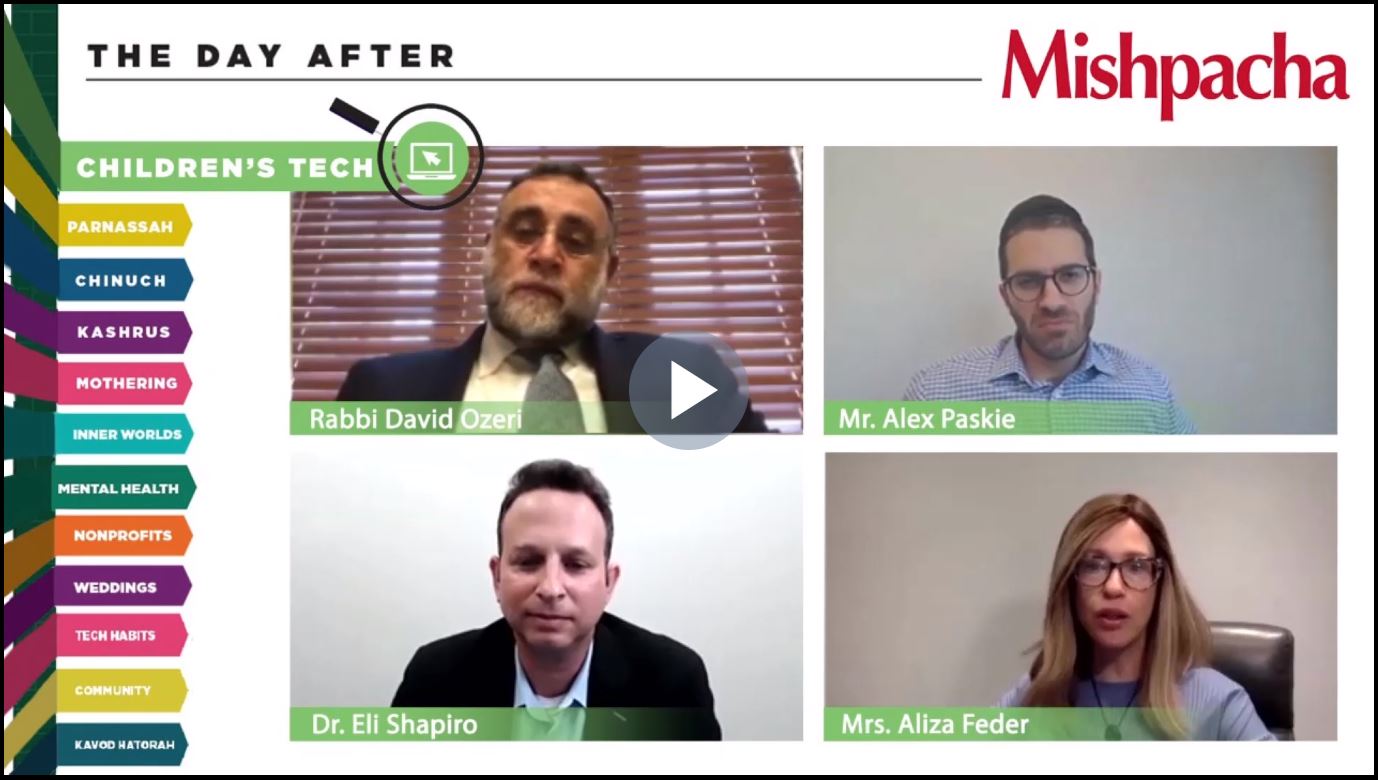
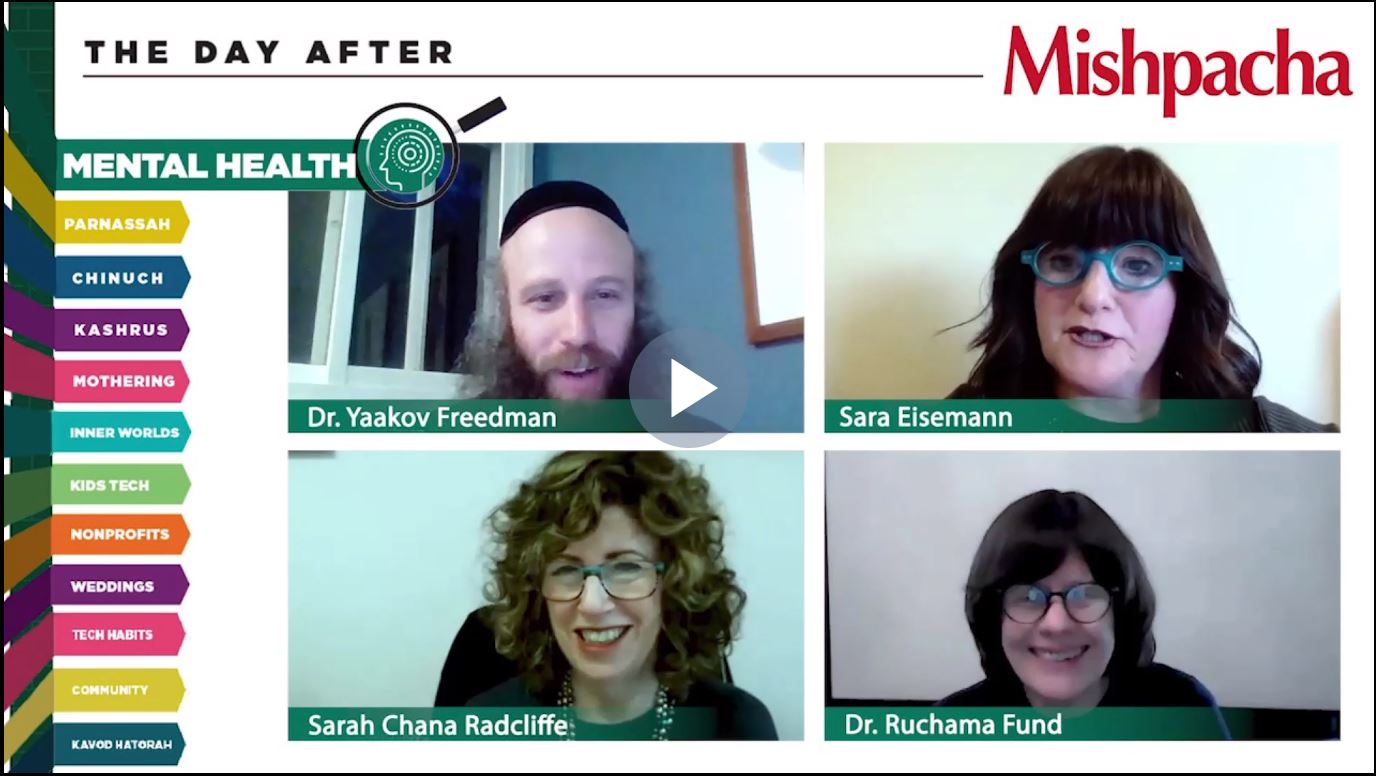
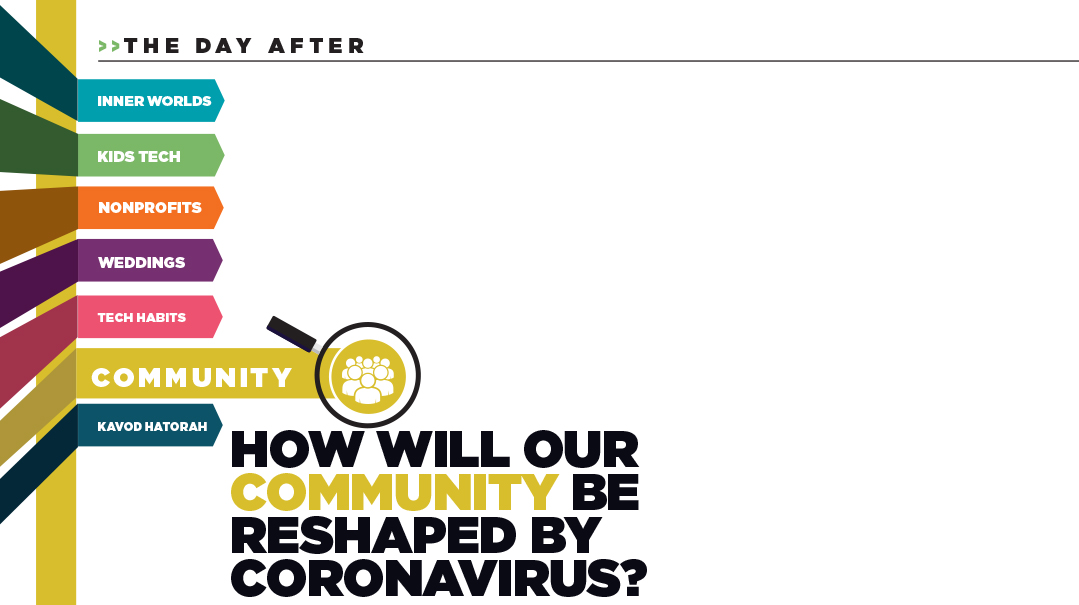
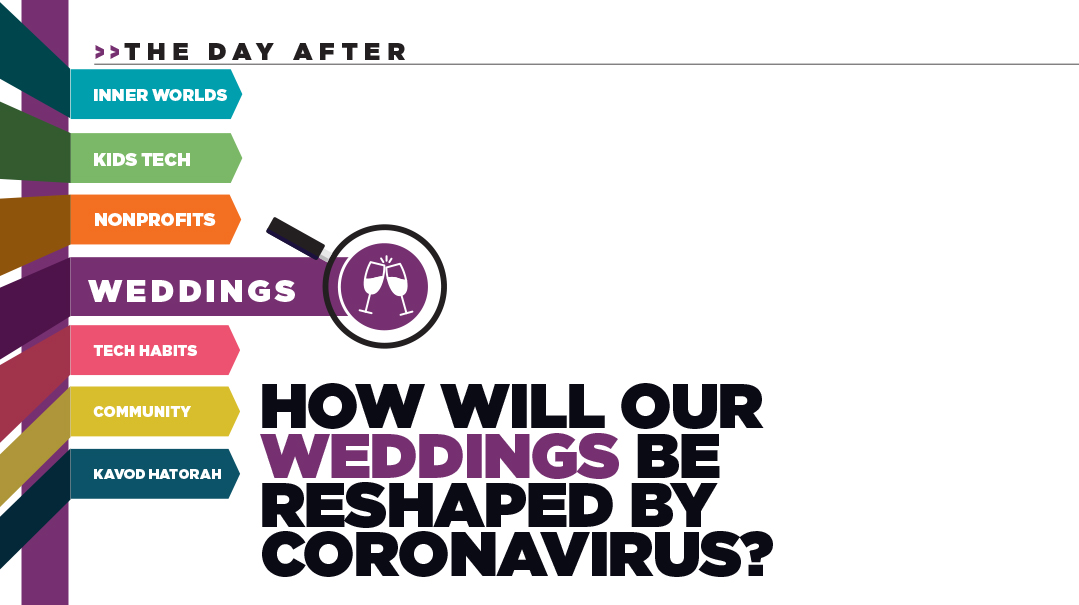
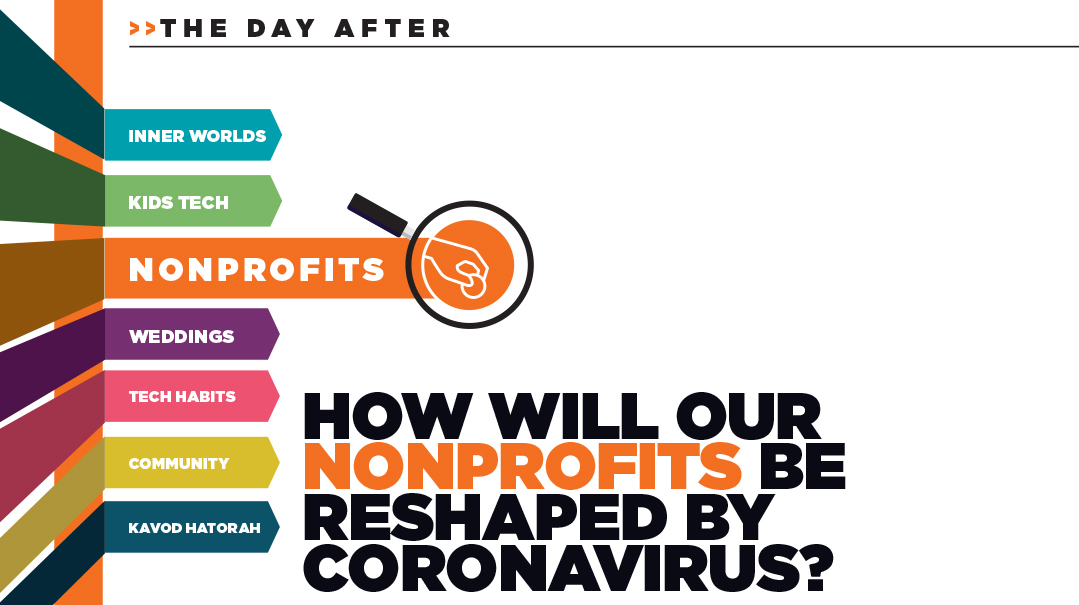

Comments (0)